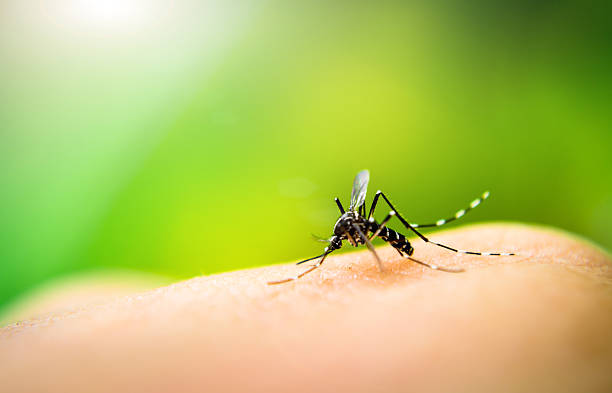Malaria is one of the most common and deadly diseases in Nigeria and other tropical regions. It is caused by a parasite transmitted to humans through the bite of infected female Anopheles mosquitoes. Understanding the symptoms and causes of malaria is crucial for timely treatment, which can prevent serious complications.
In this article, we will explore the symptoms of malaria, its causes, and the importance of seeking prompt medical help.
What Causes Malaria?
Malaria is caused by a parasite known as Plasmodium, which is transmitted to humans through mosquito bites. There are five types of Plasmodium parasites, but the most dangerous and widespread is Plasmodium falciparum, which is responsible for most malaria-related deaths.
When an infected mosquito bites a person, the parasite enters the bloodstream and travels to the liver, where it matures and multiplies. After a few days, the parasites are released back into the bloodstream, where they infect red blood cells. This cycle of infection and cell destruction causes the symptoms of malaria.
How Does Malaria Spread?
Malaria spreads primarily through the bites of infected female Anopheles mosquitoes. It can also spread through:
- Blood transfusions from an infected person.
- Sharing of contaminated needles.
- Mother-to-child transmission during pregnancy or childbirth (though this is less common).
It’s important to note that malaria cannot be transmitted from person to person through casual contact.
What Are the Symptoms of Malaria?
The symptoms of malaria usually appear 10 to 15 days after being bitten by an infected mosquito. However, in some cases, the symptoms may take weeks or months to manifest, especially if the person has taken antimalarial medication that temporarily suppresses the infection.
Here are the most common symptoms of malaria:
1. Fever and Chills
The most common symptom of malaria is a high fever that may come and go. The fever is often accompanied by chills, making the person feel extremely cold, even in a warm environment. These fever and chills can occur in cycles as the parasites burst out of red blood cells.
2. Headache
Severe headaches are another hallmark of malaria. The intensity of the headache can vary, but it often feels like a throbbing pain that can make concentration and regular activities difficult.
3. Fatigue and Weakness
As the infection progresses, the body uses a lot of energy to fight it off. This can cause extreme tiredness and weakness. Even after adequate rest, a person with malaria may still feel exhausted.
4. Muscle and Joint Pain
Many people with malaria experience aches and pains in their muscles and joints. This discomfort is often compared to the body aches associated with the flu.
5. Sweating
After the fever breaks, the person may experience profuse sweating. This is part of the body’s attempt to regulate temperature after the fever subsides.
6. Nausea and Vomiting
Malaria can also cause digestive symptoms, such as nausea, vomiting, and diarrhea. These symptoms may not be as prominent as the fever or chills but can still make the person feel weak and dehydrated.
7. Anemia
As the malaria parasite attacks and destroys red blood cells, the person may develop anemia, which can lead to paleness, shortness of breath, and dizziness.
8. Jaundice
In severe cases, malaria can cause jaundice, a condition where the skin and the whites of the eyes turn yellow due to the breakdown of red blood cells and the liver’s inability to process bilirubin.
9. Confusion and Seizures
In some cases of severe malaria, especially when caused by Plasmodium falciparum, the infection can affect the brain. This can lead to confusion, seizures, and in some cases, coma.
When to Seek Medical Help
Malaria can be life-threatening if not treated promptly. If you or someone you know is experiencing any of the symptoms mentioned above, especially after traveling to a malaria-endemic area or being bitten by mosquitoes, it’s essential to seek medical help immediately.
The best way to confirm malaria is through a blood test, which detects the presence of the malaria parasite. Early diagnosis and treatment can prevent complications such as organ failure, coma, and death.
Symptoms of Malaria: How to Get Treatment for Malaria
While some mild cases of malaria can be treated with oral medication, severe cases may require hospitalization. It’s crucial to get the correct diagnosis and treatment from a qualified medical professional.
For convenient and accessible medical care, consider seeking help from a qualified doctor on the Virtual Doctors App. You can register to book an appointment through their platform or download the Virtual Doctors Healthplus App on Google Play.
By using the Virtual Doctors App, you can consult with licensed medical professionals without leaving your home, ensuring timely treatment for malaria and other health concerns.
